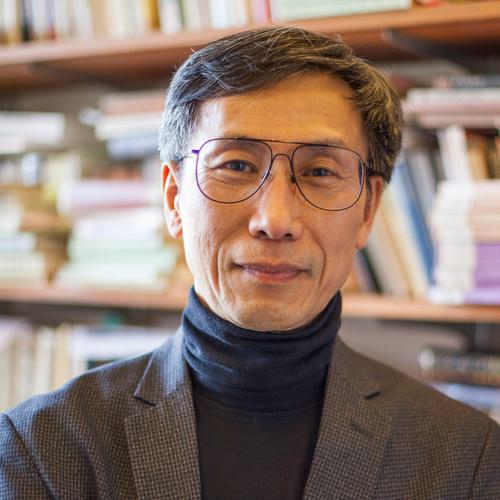
Heping Liu
Associate Professor of Art
Asian art historian and specialist in Chinese painting of the Song dynasty (960-1279).

Can you hear it?
The sound of silence
in nature
in words
in images
The sound of silence
in nature
in words
in images
What does it mean?
The ancient philosopher says—
the virtuous finds delight
in mountains
the wise finds delight
in the waters
the virtuous finds delight
in mountains
the wise finds delight
in the waters
Do you hear it?
The sound of silence
like a raindrop
falling
into the sea
like a raindrop
falling
into the sea
My research focuses on the intersections of art, literature, environment, science and technology. It has been recognized with a number of awards, including a National Endowment for the Humanities Fellowship and an American Council of Learned Societies Fellowship.
In addition to a team-taught introduction to the history of art, I offer eight other courses: Asian Art and Architecture; Japanese Art and Architecture; Chinese Art and Architecture; Chinese Painting: Theories, Principles and Practices; 20th Century Chinese Art; Poetic Painting in China, Korea and Japan (seminar); the Landscape Painting of China, Korea and Japan (seminar); and the Song Imperial Painting Academy (seminar). One of my most gratifying experiences is to make students experience works of art first-hand through object-viewing sessions, hands-on workshops, class visits to the Davis Museum, and field trips to major museums in the Boston-New York area.
My selected scholarly publications are available at: https://wellesley.academia.edu/HepingLiu
Education
- B.A., Guangzhou Institute of Foreign Languages
- M.A., Southern Methodist University
- M.A., Yale University
- M.Phil, Yale University
- Ph.D., Yale University